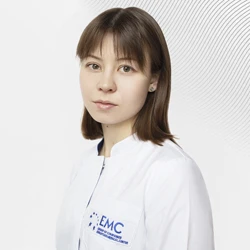Amyotrophic lateral sclerosis
Treatment and rehabilitation of patients with amyotrophic lateral sclerosis
- Symptomatic drug therapy aimed at reducing pain, spasticity and other manifestations of the disease
- Physical rehabilitation under the supervision of a neurologist
- Respiratory support
- Help with swallowing disorders, consultations with a nutritionist and a nutritionist
The causes of the disease are currently unknown, and there are no ways to completely stop it. However, thanks to modern methods of drug therapy, rehabilitation and habilitation (adaptation to life taking into account existing disorders), it is possible to significantly increase the duration and quality of life of patients with amyotrophic lateral sclerosis.
Modern drug therapy is divided into therapy that affects the course of ALS in the form of slowing down the disease and symptomatic therapy of ALS.
The scientifically proven therapy that affects the course of ALS includes 2 drugs: Edaravone (intravenous drip) and Riluzole (tablet form). Both of these drugs are still not officially registered in Russia. The Department of Neurology at the European Medical Center has significant experience in managing patients receiving Edaravone and Riluzole drugs that modify the course of amyotrophic lateral sclerosis.Symptomatic therapy of ALS includes correction of functions associated with respiratory muscle weakness, swallowing disorders (dysphagia), eating disorders, speech disorders (dysarthria), shortness of breath, viscous sputum, general weakness, skeletal muscle spasticity, salivation (sialorrhea), sleep disorders, cognitive and psychosocial disorders;
Treatment of amyotrophic lateral sclerosis
A multidisciplinary team is being formed at the European Medical Center to help patients with ALS. The treatment plan is determined and monitored by a neurologist.
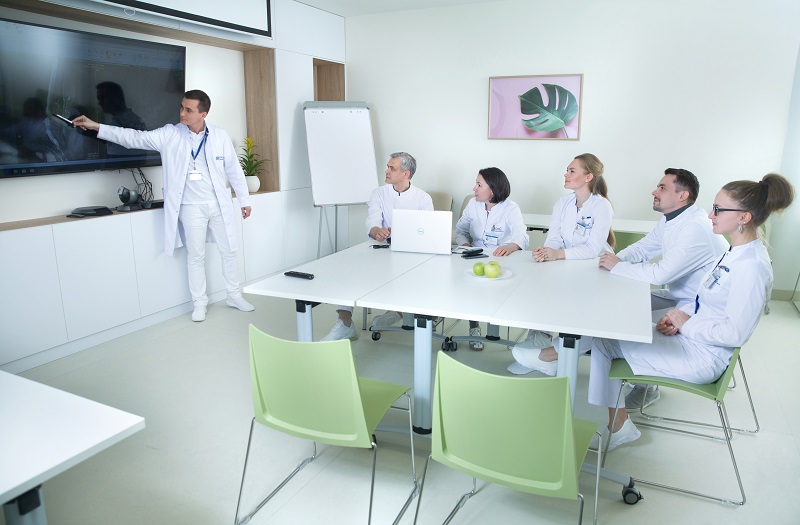
The neurologist determines the indications, contraindications, safety profile and prospects for the use of Edaravone drugs (Radicut/Radicava) and Riluzole as a pharmacological therapy that affects the course of ALS in each patient. Symptomatic drug therapy consists in the use of painkillers, muscle relaxants for muscle spasticity, anticholinergic agents for sialorrhea (salivation), antidepressants, etc.
Symptomatic therapy also includes respiratory support (noninvasive ventilation, cough suppressors), and the installation of a percutaneous gastrostomy to improve nutrition in bulbar disorders. A nutritionist or nutritionist determines the required number of calories in the daily diet, recommends additional therapeutic nutrition, taking into account the constantly changing needs of the patient.If necessary, the patient is advised by a swallowing specialist (an ENT doctor with appropriate qualifications), who evaluates the type of swallowing disorder and helps activate the patient's own reserves for prolonged independent intake of solid and liquid foods.
Patients are also monitored by a general practitioner in order to control and prevent somatic diseases, monitor respiratory function, and discuss a vaccination plan for the prevention of bronchopulmonary diseases. According to the indications, patients can be monitored by a psychotherapist for the treatment of developing depression and other mental disorders.
Rehabilitation
Patients with amyotrophic lateral sclerosis need, first of all, motor rehabilitation — exercises aimed at training muscles that are not affected by the disease. Regular exercises aimed at increasing overall physical strength allow the patient to:
- as long as possible to overcome the motor defects that the progression of the disease brings,
- maintain muscle tone,
- prevent the development of contractures (joint movement limitations).
At the beginning of rehabilitation, the most active workouts are carried out, aimed at increasing the strength of working muscles on the AlterG anti-gravity treadmill, if necessary, the Vector Bioness support system is used, allowing the patient to perform various movements without the risk of falling.
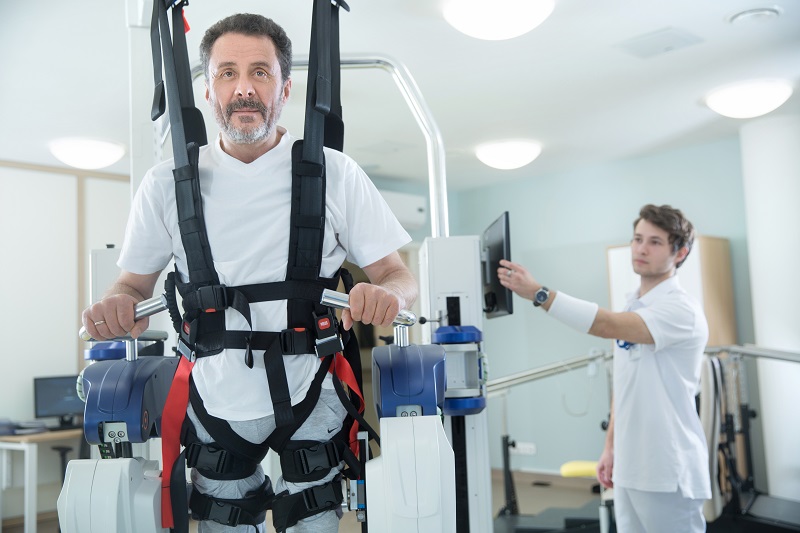
With the course of the disease, it is advisable to use milder, passive training techniques using unloading simulators — passive-active rehabilitation on a ReoAmbulator. It is important that the patient performs a set of exercises every day that suits his abilities.
Due to the progression of the disease, habilitation is necessary at a certain stage — measures to adapt to life in conditions of illness. Proper work with respiratory and swallowing disorders, prevention of aspiration pneumonia, which, according to statistics, is the main cause of death of ALS patients, plays an important role in prolonging the life of ALS patients.
As a rule, cognitive functions are preserved in people suffering from ALS. The patient needs to be able to have contact with the outside world when the ability to speak and write is lost. The information vacuum and lack of intellectual tasks for ALS patients are unacceptable.An occupational therapist participates in the rehabilitation of ALS patients, who will help them find a working communication tool (voice input programs, eye trackers, etc.), special tools to facilitate movement, dressing, etc., which will allow the patient to remain independent and mobile for as long as possible. The rehabilitologist will help the family to organize a comfortable space in the house to preserve the patient's quality of life, which is the main goal of rehabilitation of ALS patients.
Make an appointment for a consultation and we will contact you for more details
Why the EMC
The first and only clinic in Russia, created in the image of the world's leading clinics
EMC is a multidisciplinary center offering patients a high level of medical services and a personalized approach
Worldwide recognition and awards
 Learn more
Learn more
Worldwide recognition and awards
 Certificates and licenses
Certificates and licenses
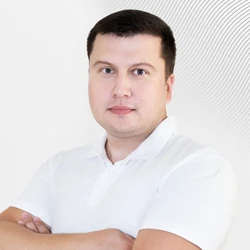
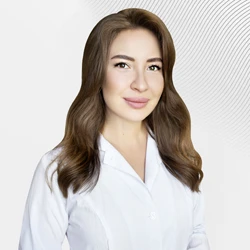
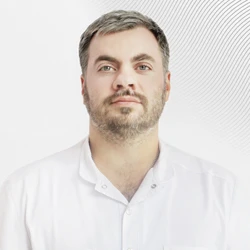
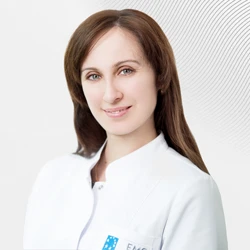
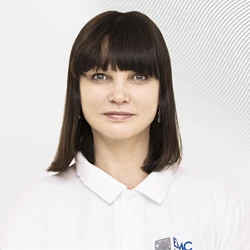

.webp)
.webp)
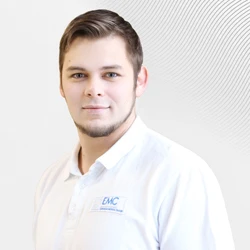
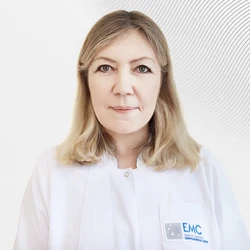
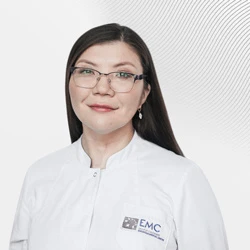
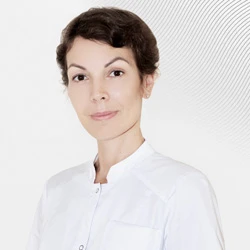

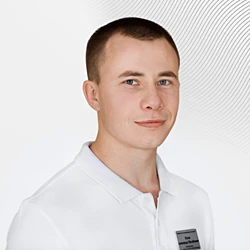
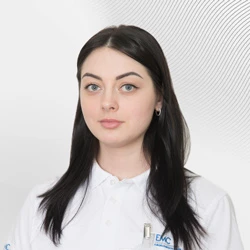
.webp)
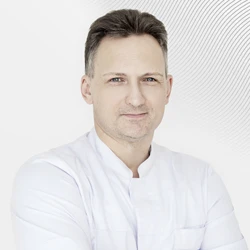
.webp)
